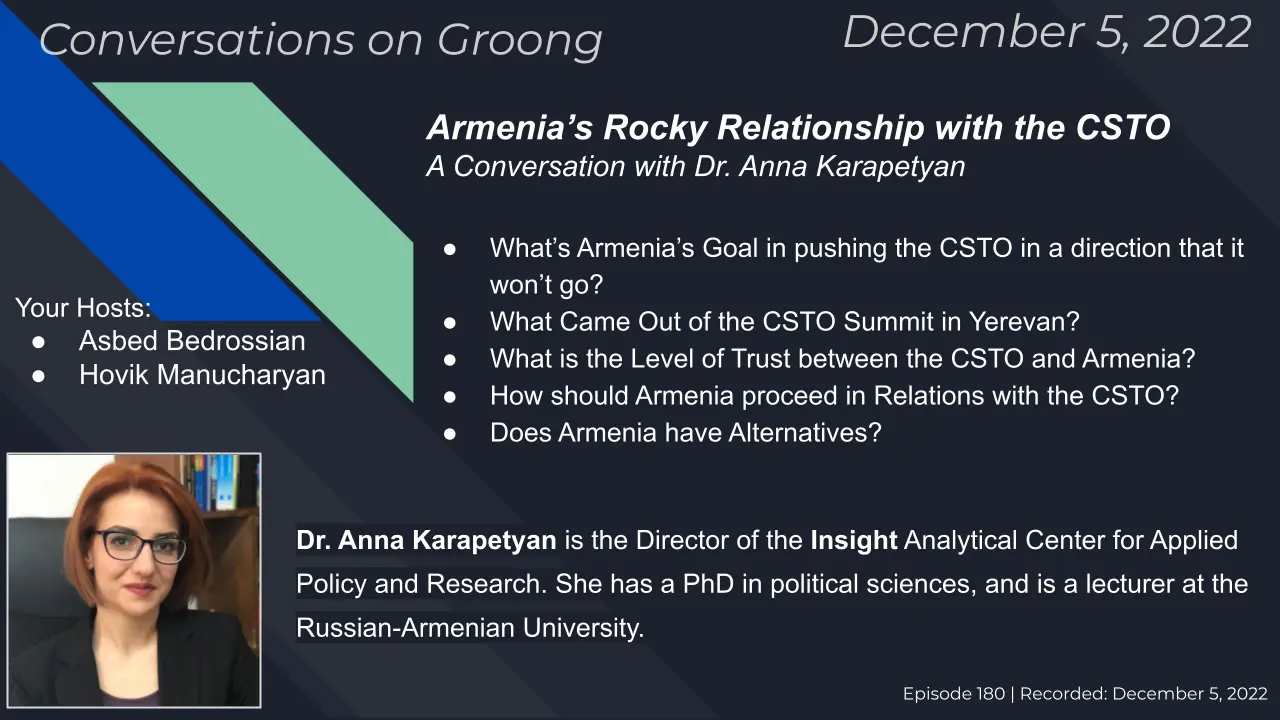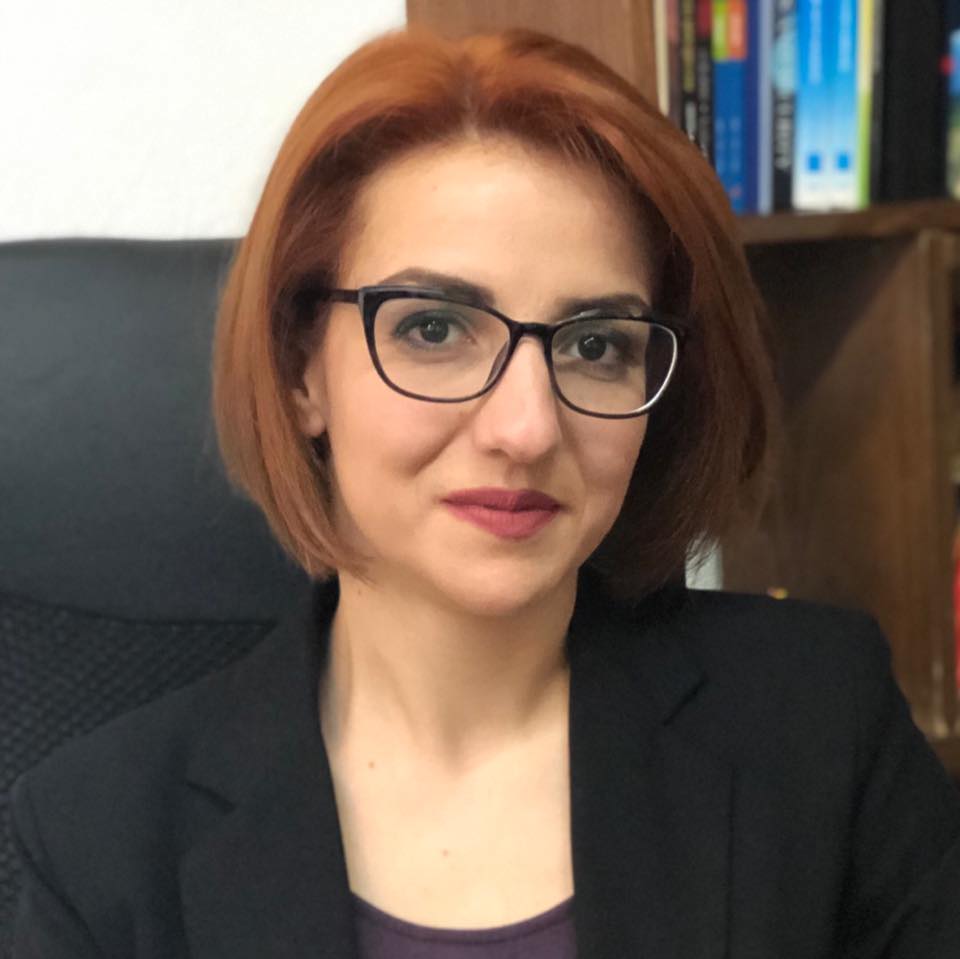
Guest:
Topics:
- What’s Armenia’s Goal in pushing the CSTO in a direction that it won’t go?
- What Came Out of the CSTO Summit in Yerevan?
- What is the Level of Trust between the CSTO and Armenia?
- How should Armenian proceed in Relations with the CSTO?
- Does Armenia have Alternatives?
Episode 180 | Recorded: December 5, 2022
Show Notes
CSTO Summit in Yerevan
On Wednesday, November 23rd, Russian president Putin arrived in Yerevan to attend the CSTO Summit. It was originally announced that he would arrive a day earlier, but for whatever reasons that didn’t happen. Pashinyan had been inviting Putin to visit since earlier in the year, and Putin had originally agreed to do so, but those plans got compressed into this visit for the CSTO summit.
Among Armenia’s stated goals was to obtain a clear assessment of the CSTO’s support for Armenia’s sovereignty, condemning Azerbaijan’s occupation of Armenian territory. This goal was not achieved, and Pashinyan did not sign the final CSTO summit declaration.
This is the second time that Pashinyan has pushed the CSTO to come up with a supportive stance, and has been pushed back. Last time, in October, Pashinyan was rejected by Belarus president Lukashenko.
Armenia has two alliances. There is the CSTO alliance, and there is also a bilateral alliance with Russia.
- What is Armenia’s goal in pushing the CSTO to do something, or actually just to SAY something, that it has clearly indicated it doesn’t want to, and will not do?
- Note: Just before the meeting, the Vice Speaker of the Russian Federation Council Konstantin Kosachev articulated Russia’s message that helping Armenia was not up to the CSTO, but basically Russia; this was also reiterated after the meeting by the ambassador in Armenia Sergei Kopyrkin.
- The CSTO is really Russia at the core. Why doesn’t Armenia simply rely on Russia, through the framework of its bilateral alliance?
- What was achieved at this CSTO summit in Yerevan?
- Can the CSTO be a useful alliance for Armenia?
In a previous show we discussed Lukashenko’s rude rejection of Armenia’s first push at the CSTO for support against Azerbaijan. I’m going to play semantics here for a moment: Lukashenko specifically said that Azerbaijan was headed by “absolutely our man, Ilham Aliyev” and that “huge ties” with Azerbaijan could not be ignored.
Most people accepted that as an indication of the close ties that Azerbaijan enjoys with CSTO members. In fact, Aliyev said that Azerbaijan has more friends in the CSTO than Armenia has.
- Do you think that Lukashenko’s statement makes the latent implication that Pashinyan is “not our man”, perhaps hinting that the Pashinyan government is a 5th column inside the CSTO, and the result of a color revolution such as the ones in Ukraine and Georgia?
- How should Armenia proceed with relations with the CSTO, given the dynamics we have just discussed?
Wrap-up
We hope you found our Conversations on Groong helpful, we invite your feedback and your suggestions. You can find us on most social media and podcast platforms. Thanks to Laura Osborn for the music on our podcasts.
Guests

Anna Karapetyan
Dr. Anna Karapetyan is the Director of the Insight Analytical Center for Applied Policy and Research. She has a PhD in political sciences, and is a lecturer at the Russian-Armenian University.
Hosts

Asbed Bedrossian
Asbed Bedrossian is an IT professional, and for years oversaw the central IT enterprise infrastructure and services at USC. His decades of experience spanned across IT strategy, enterprise architecture, infrastructure, cybersecurity, enterprise applications, data center operations, high performance computing, ITSM, ITPM, and more.
Asbed founded the Armenian News Network Groong circa 1989/1990, and co-founded the ANN/Groong podcast in 2020.

Hovik Manucharyan
Hovik Manucharyan is an information security engineer who moved from Seattle to Armenia in 2022. He co-founded the ANN/Groong podcast in 2020 and has been a contributor to Groong News since the late 1990s.
Disclaimer: The views expressed by Hovik Manucharyan on the ANN/Groong podcast are his own and do not necessarily reflect the opinions of his employer or any other organization.